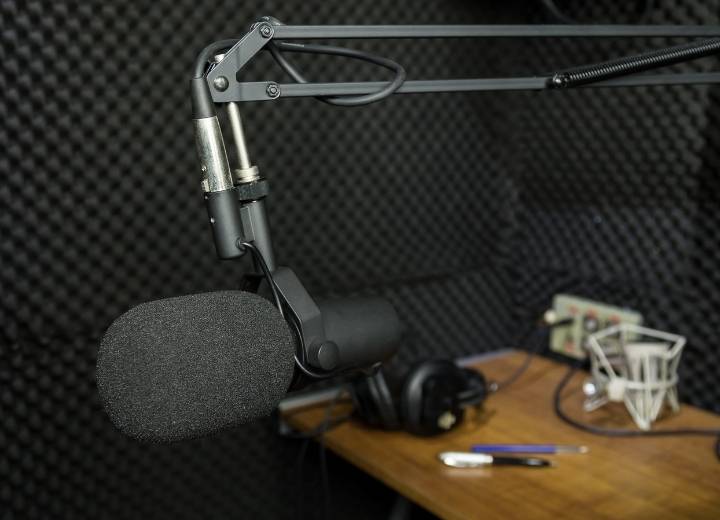
Some explanation on why are recording studios dark?
Studio rooms are often dark because dim lighting creates a comfortable space for artists to perform at their best.
Darkness not only helps reduce visual stress but also has a psychological impact on stimulating creativity. Here we will analyze more closely the benefits that a dark recording studio brings.
What Are The Benefits Of A Dark Studio?
The dark studio offers 3 benefits to the artist:
- Artists are usually calmer and more relaxed when operating and working in a dark studio. This creates conditions that stimulate their creativity. Many artists find that the more comfortable they are, the more creative they become.
- A second benefit of using dimming lights in the studio is that it reduces the risk of eye strain and headaches. Since then, the artist’s long-term health has been better.
- Usually, artists will feel nervous when working, performing in a bright room, or having people in the viewing room. And a darker studio room will alleviate some of the artist’s pressure and anxiety. As a result, their working efficiency is also better.
Psychological effects
The dark studio brings a lot of psychological effects. And this is also one of the benefits of using dim lighting in the recording studio.
In 2013, psychologists Anna Steidel and Lioba Werth tested different book light effects on someone’s creativity. What they found was that “darkness stimulates a cascade of interrelated processes, including cognitive processing in favor of creativity.”
- Dim lighting can send a visual message that allows the brain to enter the space freely and without restriction. They then stimulate us to use more of the creative part of our mind.
- A good working environment will have different lighting conditions depending on each thinking style.
Practical working benefits
There are many practical benefits to working in a recording studio using dim lighting. One of them is to help eliminate all the light that conflicts with other lighting sources. Dimmed light, for example, helps to remove or soften the light from computer screens that can cause unnecessary strain on the eyes.
Besides, in dark studio conditions, the led lights arranged on recording devices such as synths, re-arms, and mixers will be easier to see.
Furthermore, low-intensity light can reduce the risk of headaches. What happens when you have a headache in your studio? Surely you will not be able to concentrate and work efficiency will not be high. So if you often have headaches in the studio, the light may be the cause of this condition.
However, this does not mean that the ideal environment will have darker light. Because in such conditions, you may not be able to see your recording device.
Benefits for the artist
Dim lighting in the studio brings many benefits to the artist.
A studio with too much light can make a performer feel more in control. However, with a darker studio, their feelings of anxiety will be reduced.
Experts say that studio lighting needs to be changed to suit different situations. One piece of advice for you is to use a lava lamp or glow crystal. You can change the led light to any color according to your mood.
Having such types of lighting in the recording studio, you will feel more comfortable when working.
Frequently Asked Questions
1. What lighting should I use for my recording studio?
There are many options available to you. LED lights are great for home recording studios. Because they operate at a very low temperature compared to other lights, this helps to reduce the risk of a fire. At the same time, LED lights do not make your studio too hot.
2. How important are studio lights?
The importance of studio lights depends on the artist’s personal preference.
As mentioned, a low-light studio can help increase creativity, creating a comfortable and pleasant working environment. However, some artists prefer brighter rooms. They feel that in dark spaces, it will be more stuffy and difficult to function.
The level of studio lighting depends on many factors such as working circumstances, personal preferences. But overall, most studios usually have little light to create a helping environment. Artists work more efficiently. So let’s see how you fit into your workspace to design the perfect recording studio.
Final Thoughts
With the above article, you already have useful information about the benefits of a studio’s dark. If you have any questions, don’t forget to contact us. Thanks for reading!
